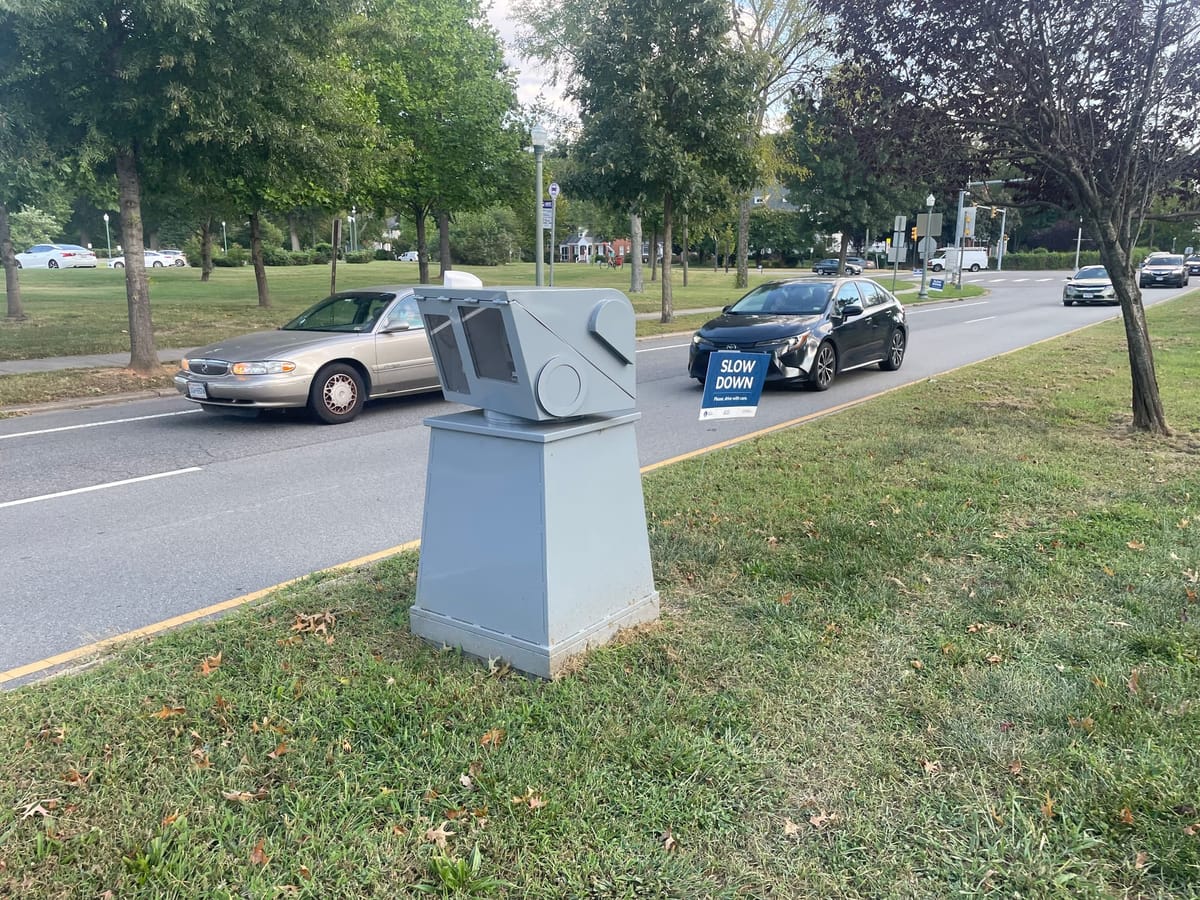
Richmond legislators will push to let city install more speed cameras
State legislators who represent Richmond are planning to push for new laws during the next General Assembly session that would increase the number of areas where the city is allowed to use speed cameras.
“We need more speed enforcement, and it’s not going to happen with personnel,” said City Council President Kristen Nye. “The speed cameras, we’ve seen them work as a deterrent. And we just want to have the ability to use them in more spots.”
Currently, state law only allows local governments to place speed cameras in school crossing zones, highway work zones and intersections within 1,000 feet of schools where a fatality has occurred since 2014. Otherwise the devices — which evaluate how fast drivers are going and then issue tickets to vehicle owners — are forbidden.
Legislation backed by City Council would let the cameras be placed around college campuses and day cares as well as expand the hours they can be used in K-12 school zones.
Richmond Del. Mike Jones, a former City Council member, has said he will carry all the bills, as well as legislation that would allow the cameras to be placed on roads where high numbers of people have been killed or severely injured in traffic accidents.
“People are literally dying in my district, and there’s something we can do about it,” he said. “We can get people to slow down.”
Jones argued that current staff shortages in the Richmond Police Department make it unrealistic to rely solely on officers to enforce traffic laws.
“Our numbers are so low, even if we started taking full classes right now, it would take us 10 years” to fully staff out the department, he said.
Last year, Richmond Del. Betsy Carr carried legislation that would have let the city place the cameras around colleges by expanding the definition of a school crossing zone, but the bill died in committee.
Asked about the prospects of the 2025 proposals, Jones said, “I like them better this year.” Nye said she thought some of the objections to the cameras, which largely center on concerns about mass surveillance or view their use as a cash grab by local governments, had died down.
“The cash grab, it’s not as lucrative as everybody thinks, because we have to pay for the speed cameras,” she said. “There’s installation, maintenance and all that, as well as the processing of all the tickets.”
James Mercante, a spokesperson for the Richmond Police Department, said Richmond has collected almost $298,000 in fines for citations mailed between March 18 and Oct. 31 of this year. Those payments represent a little more than a third of the citations that were issued during that period.

Since the speed camera laws went into effect, Richmond has placed 15 of the devices outside 11 schools. They operate between 7:15 a.m. and 9:15 a.m. and between 2:15 p.m. and 4:15 p.m. on school days. Citations are mailed to people who are clocked as driving 11 or more mph over the speed limit.
Mercante said the cameras had recorded over 6,000 school zone violations in September and October of this year, with speeds reaching as high as 66 mph. Of the drivers mailed citations, 95% had Virginia license plates.
If Jones’ legislation is successful, Richmond could place cameras on the campuses of Virginia Commonwealth University, Virginia Union University and the University of Richmond, which straddles the city and Henrico County, as well as Reynolds Community College.
Jake Burns, a spokesperson for the VCU Police Department, said university police issued 355 speeding violations in areas around the school’s Monroe Park and VCU Medical School campuses between Jan. 1 and Oct. 31 of this year.
In 2023, 440 speeding citations were issued, while in 2022, they totaled 176. Burns said those figures don’t include stops that only produced verbal warnings.
“VCU Police support the inclusion of institutions of higher education in the existing school safety zone legislation,” he said. “We look forward to reviewing the final details and working with legislators on the expansion of this important safety measure.”
City Council is set to consider the legislative agenda, including the speed camera priorities, on Dec. 9, although Nye said the vote will be largely “perfunctory.”
“We already had our legislative summit with the delegation, and everybody’s already had time to give input,” she said. “Honestly, we’ve been working on this since July.”
At a press conference Wednesday, Mayor Levar Stoney said he was “a proponent of speed cameras anywhere a locality deems it necessary.”
“It just makes sense and keeps people safe,” he said.







